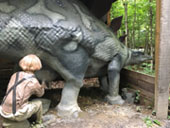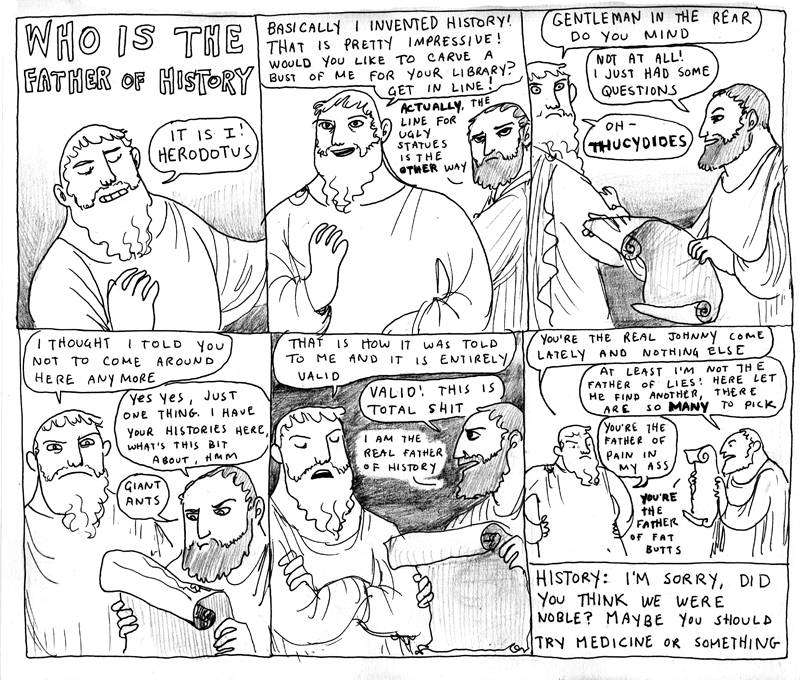- Nckdictator
- Sep 8, 2006
-
Just..someone
|
History is great.
http://www.thomas-morris.uk/glass-half-empty/
quote:"While recently on a visit to Canton, I derived the history of the following case from the notes and verbal explanations of the Rev. Peter Parker, M. D., chief of the Ophthalmic Hospital, &c., under whose notice they fell. The case affords us a glance at the debauchery practiced by a portion of the Chinese population about Canton.
In the evening of the 1st of March, 1848, a young man, very respectable in appearance, solicited Dr. Parker’s aid for his father, whom he had brought to the hospital. With many expressions, indicative of his sense of shame and mortification, he related that Loo, his father, then sixty years of age, had spent the preceding night in one of the ‘flower-boats,’ or floating brothels, on the river, with a prostitute. Under the insane excitement or intoxication produced by the combined influence of drinking spirituous liquors and smoking opium, the lecherous sufferer, in mischievous frolic, forced a glass goblet—size: diameter of brim, 2 5/8 inches; height, 3 1/2 inches; diameter of base, 1 7/8 inches—into the vagina of the companion of his sports.
In the course of the night Loo fell into a state of unconsciousness, when the woman sought her revenge. She carefully insinuated the base of the goblet within his anus, and then placing the end of her opium-pipe—a cylinder about an inch in diameter, and a foot and a half in length—at the bottom of the goblet on the inside, suddenly pushed it into the rectum, entirely above the sphincter. Twenty-four hours had elapsed since its introduction. An angle of about a half inch of the rolled lip of the glass had been broken out by efforts made by friends to remove it.
On examination, the glass was found firmly fixed in its position; it was very difficult to pass the extremity of the finger beyond its lip, betwixt its outside and the rectum. In Dr. Parker’s opinion, it was impossible to extract it entire: and, therefore, though anticipating difficulty and danger in the operation, he determined to break it down. By means of forceps, such as are used by obstetricians in breaking up the foetal cranium, commencing on the side nearest the pubis, he broke up the goblet, and extracted it piece by piece, carefully guarding the parts by folds of cotton cloth as he proceeded, and removing the small sharp fragments which fell with a teaspoon.
After the bowl, or bell portion was removed, the most difficult part of the operation remained to be performed, for the hemorrhage was free, and the base of the goblet, with the sharp points of the sessile stem, resulting from the fracture, was high up in the rectum, and firmly embraced in a transverse position. Assisted by the bearing down of the patient, the edge of the base was reached by the point of a finger, and with difficulty turned edgewise, guarding against fractured points by pledgets [cushions of cloth]; then, by pressing the smooth side, or bottom of the glass, against the rectum, it was at last extracted. Remaining fragments were sought for, and the intestine thoroughly washed out. To arrest the hemorrhage, which was considerable, strong solutions of sulphate of copper and of alum were injected, and temporarily confined in the rectum, by pressing a sponge against the anus. For a time the bleeding ceased; but during the night several ounces of coagulated blood were evacuated; afterwards, there was no more hemorrhage.
The operation occupied an hour and a half. An opiate was administered, and the patient placed in bed. The general treatment consisted in rest, laxatives, and light diet; the rectum was occasionally injected with tepid water, and solutions of nitrate of silver. On the fourteenth day the case was discharged cured.
A young man, native of Canton, applied to Dr. Parker for relief. He had been married about eight months. On the nuptial night, he met with insurmountable difficulty in his attempt to establish sexual intercourse with his bride, and in an effort, on that occasion, sustained a severe, and most probably, irreparable injury, which caused great pain.
Since that night, erection of the penis is limited to about a half an inch of its root, the extremity of the organ, with its glans, hanging flaccid. On examination, a well-defined, transverse space, through the corpora cavernosa, about a half inch from the pubis, the site of fracture, was found to separate the penis into two parts.
No attempt was made to remedy this serious misfortune.
quote:"Hartford Herald," March 13, 1901:
Huntington, W. Va. March 7.--Berry Crowder, a well-to-do citizen of Hams branch in Boone county, is suffering greatly to-day from the effects of a whipping administered to him yesterday by his invalid wife, who he supposed was in the last stages of galloping consumption. Mrs. Crowder has been ill for some months with a lung infection. Her condition at times has been extremely critical. When her husband took a big load of produce to Charleston Saturday he took on the usual number of "high balls" while in the city, and while in a happy mood imagined that it would be a good plan to secure a coffin for his wife, whose death he expected at any time, and take it home, where it would be handy if his diagnosis of the case proved to be correct. His friends endeavored to induce him to abandon the idea, but a $40 coffin was stored in Crowder's wagon before he started home. When he reached there and the wife heard of his action, there was such a change in her condition that the entire neighborhood was attracted to the scene. The mild consumptive was suddenly transformed. Grasping a billet of wood, she felled her man with one blow and with an ax demolished the coffin. Crowder got more attention from her and the club she carried, and is said to be in a serious condition, while the woman is yet on the war path for a female who she claims the husband has been paying too much attention to and praying for her death.
http://strangeco.blogspot.com/2015/05/newspaper-clipping-of-day.html
quote:South Bend, Ind., March 22.
Several months ago the grave of Sarah Platts, a young lady who died of consumption, was found disturbed, and an examination showed that the head of the corpse was missing. What led to the discovery was the finding of a human jawbone by Fred Auer, a farmer, who lived near the county graveyard, some eight miles from the city, where the body was buried. The fact that only the head was taken threw suspicions on an amateur phrenologist named Gordon Truesdale. Truesdale occupied a small farm in the vicinity with his wife and family of four girls, the oldest not more than eight years old. He was a handsome, broad-shouldered fellow, with a fair education, but lazy and shiftless. His great hobby was phrenology, and he occasionally lectured on that subject in country school-houses. His ambition to possess a collection of skulls was well known in the neighborhood, and the desecration of the Platts girl's grave was laid at his door, although he was never openly charged with it.
About three weeks ago Truesdale went to a physician and asked if a person could become poisoned in handling a dead body. He received an affirmative reply and appeared to be much troubled. He complained to his wife that his nose was paining him terribly and he believed he was taking the erysipelas. He began doctoring himself with bread-and-milk poultices, but without success. His face began to swell rapidly, and in less than three days it and his head became twice their natural size and lost all semblance to human shape. A physician was called in against the wishes of Truesdale. He found the man suffering terribly. His lids were drawn by the tension of the skin and writhed themselves away from the teeth in unceasing pain. The cuticle across the bridge of the nose and over the forehead was so distended with the mattery substance underneath that it seemed as if it must burst every moment. The eyes were swollen almost to bursting from their sockets and were turned with pain until hardly anything but the whites could be seen. It was evident that a terrible poison was slowly but surely permeating the man's whole system.
The physician, after a careful examination of the unwilling patient, cut open his skin from about the center of his nose almost to the roots of his hair, and then made another across the forehead almost from temple to temple. From these incisions there oozed a mass of loathsome, detestable putrescence, so terrible in its stench that the attendants, save one, ran from the house. Other incisions were made in different parts of the scalp, from which the hair had been shaved, and from these this terribly offensive matter oozed constantly, until the swelling was reduced and the head and face assumed nearly their normal size. Attempts were then made to free the incisions of matter by injecting water into them. It was noticed that when water was forced into the cut in the forehead it poured out of the holes in the scalp. As one of the attendants said, "it seemed as if all the flesh between the skin arid bone had turned into corruption and ran out."
When Mr. Truesdale was told that he could not possibly recover, he called his wife into the room and confessed to her that he robbed the Platts girl's grave, and referred to a certain night when he left the house and refused to tell her where he went at the time when he committed the crime. He said that he dug down to the head of the coffin, broke it open and, taking his knife, cut around the neck of the corpse through the flesh to the bone. He then placed one of his feet on the breast of the corpse, and, taking the head in his hands, pulled and jerked and twisted it until it came off by mere force. He afterward disjointed the lower jaw and threw it where Fred Auer found it. He closed his confession by telling her where the skull would be found, under the straw in a certain manger in the stable. It was found there and given up to the Platts family.
The last three days of Truesdale's existence were terrible, not only to himself but to those who watched him. The poison from some corpse (for it is believed he had recently opened several graves,) which was communicated to his system by picking a raw spot on the inside of his nose, appeared to course through every vein in his body. Not only was his person offensive to the eye, but the odor and heat of his breath was so offensive that it was impossible for the attendants to wait on him properly. The breath was so poisonous that when one of the attendants held his hand six inches from the dying man's mouth it stung the flesh like hundreds of nettles. Those who waited on him were obliged
to wear gloves, as it was impossible to wash the odor from their hands. The day he died his flesh was so rotten that it seemed as if it would drop from the bones it touched, and his eyes actually decayed until they became sightless.
For two days before his death a coffin had been in readiness, and the orders of the physician were to place him in it as soon as the breath left his body and get him under the ground immediately. After his death none of the attendants had the temerity to touch the corpse, for fear of being poisoned, so they gathered the sheets on which the body lay at each end, and thus lifted it into the coffin. The lid was quickly screwed down, but before a wagon could be procured the body swelled and burst it off. It was then strapped on, but when the coffin was taken from the wagon at the graveyard, just at daylight, it again flew off, and the body appeared to swell visibly before the horrified attendants' eyes. The fetid, noisome stench from the putrid mass within was such that no one could attempt to replace the cover, and the coffin was covered from sight as hurriedly as possible.
The day after the funeral, or burial, rather, the wife of Truesdale was confined at a neighbor's house, this fifth child also being a girl. The Truesdale house will not be fit to occupy for several days, as all efforts to fumigate it thus far have failed. The doors and windows have been left open day and night, but the stench is still as bad as when he died. As one of the attendants said, "It still seems as if you could cut the air in that house with a knife."
http://strangeco.blogspot.com/2016/06/the-search-for-timbuktu.html
quote: The Search For Timbuktu
The history of exploration is full of strange stories, but it is hard to think of any that have more elements of both tragedy and comic opera than the 19th century search for Timbuktu. This so-called "lost city" was that era's most intriguing prize. It was reputed to be a site of unparalleled richness lying waiting to be discovered in the heart of Africa. Tales were told of it being a place of unimaginable wealth, learning, and power--a sort of Atlantis on dry land.
There were, naturally, many efforts to find this magnificent hidden kingdom. And they only succeeded in finding The Weird.
The earliest known effort by a Westerner to discover the city was an American named John Ledyard. He had never been to Africa and knew not a word of Arabic, but that did not stop him from setting boldly out in 1788. He made it as far as Cairo, when, while ineptly treating himself for a "bilious complaint," he accidentally overdosed himself with sulphuric acid. He died almost immediately. He could not know it, but his expedition was to set the tone for all explorers following in his footsteps.
The next hunt for Timbuktu was led by an Irishman, Daniel Houghton, in 1791. All went well until he reached Gambia. He was attacked by bandits, who stole his supplies and beat him to death.
In 1795, a Scottish explorer named Mungo Park set off for Timbuktu, only to also be robbed along the way. He tried again in 1803 with a party of 46 men. Not one of them came back alive.
In 1817, a British surgeon named Joseph Ritchie (now mostly known--if he's known at all--as a friend of the poet Keats) tried his hand at finding Timbuktu. Ritchie had no experience whatsover as an explorer, and it showed. He spent the small sum allocated to him in mostly worthless ways--including having himself circumcised so he could pass himself off as an Arab. His party soon ran out of supplies, and he wound up dying of starvation embarrassingly quickly.
The growth of serious Timbuktu madness can be blamed on a now-obscure fabulist named James Jackson. In 1809 he published a book with the alluring title, "An Accurate and Interesting Account of Timbuktu, the Great Emporium of Central Africa." It may not have been accurate, but it was certainly interesting. It described a huge city boasting vast wealth and natural resources--it was literally paved with gold--a paradisaical climate, and, perhaps of greatest interest to Jackson's male readers, loads of beautiful, sexually adventurous women. His Timbuktu was sort of a cross between the Garden of Eden and the Playboy Mansion.
It's still not quite certain if Jackson was a deliberate fantasist or a deluded lunatic, but in any case, the book was a massive best-seller, going through at least ten editions. No one, it seems, questioned the scientific accuracy of the book, and the hunt for Timbuktu became an obsession throughout Europe.
The first major search for this glittering prize was a Venetian Egyptologist named Giovanni Belzoni, who set off in 1823. Before he had traveled more than ten miles, he died of dysentery.
In 1824, the British decided to give it another go. The responsibility for planning the expedition fell to Lord Henry Bathurst, the Secretary of State for Colonial Affairs. This was to prove to be an unfortunate choice. As Timbuktu was thought to lie about 500 miles inland from Africa's west coast, the logical thing to do would be to approach it from that direction.
Bathurst, however--for reasons no one has quite understood--opted to approach Timbuktu from the north. It did not seem to bother him that this meant crossing 3,000 miles of the Sahara Desert. He blithely assumed one could sail into Tripoli, rent a few camels, and just ride to one oasis after another until you reached Timbuktu. It was a thoroughly insane plan. One would have to be thoroughly insane to go through with it.
Enter Alexander Gordon Laing.
The thirty-year-old Laing was an officer in the Royal African Colonial Corps in Sierra Leone. He was handsome, idealistic, brave, energetic, dashing, adventurous, and highly ambitious.
Unfortunately, he was also a delusional egomaniac.
Laing, like nearly all seekers of Timbuktu, had no experience as an explorer. In fact, he had little experience in much of anything other than writing dreadful poems about himself. As for his capabilities as a military officer, his commander once wrote that "His military exploits are even worse than his poetry."
Nevertheless, he had from boyhood nursed dreams of making himself famous by "some important discovery." He felt he was the one destined to finally find the legendary Timbuktu. He wrote with his usual grandiloquence, "The world will forever remain in ignorance of the place, as I make no vainglorious assertion when I say that it will never be visited by Christian man after me...I am so wrapt in the success of this enterprise that I think of nothing else all day and dream of nothing else all night." When he learned of Bathurst's expedition, he immediately volunteered to lead the mission. Bathurst was favorably impressed by Laing's courage, poise, and willingness to make the trip on the cheap. The madcap young officer was hired on the spot.
Laing set off for Africa in 1825. He eventually made his way to Tripoli, where the British Consul, Hanmer Warrington, was to help him travel to the interior of the continent. However, the more Warrington saw of Laing, the more pessimistic he became about the would-be explorer's chances for success. The younger man's uncertain health, lack of money, and general air of fecklessness disturbed him.
Warrington became even more disturbed when his daughter Emma fell instantly in love with Laing. Before long, the young couple was begging him to allow them to marry. The idea of having this impecunious--and, he was now convinced, slightly cracked--would be explorer as a son-in-law horrified him, and he initially refused to even consider the idea. He wrote Bathurst, "Although I am aware that Major Laing is a very gentlemanly, honourable and good man still I must allow a more wild, enthusiastic and romantic attachment never before existed." Finally, when Emma threatened to kill herself if she was not allowed to marry Laing, Warrington relented--with one condition. He allowed them to go through with a marriage service, but the union was not to be consummated until Laing returned alive and well from his expedition.
Warrington evidently surmised that the chances of that happening were small.
The young lovers agreed to his terms, and they were wed in July 1825. Love gave a new impetus to Laing's ambitions. He was now seeking fame and fortune not just for himself, but for the lady of his heart. "I shall do more than has ever been done before," he vowed, "and shall show myself to be what I have ever considered myself, a man of enterprise and genius." Four days after the wedding, he began his trek across the Sahara, taking with him only a few camels and a small band of assistants.
Highly dangerous, uncharted territory, lack of any skilled planning, little outdoors experience, and a leader who was a real-life version of Monty Python's Black Knight. What could go wrong?
Everything, of course. Although we know very little about this expedition other than Laing's few surviving letters, it is clear that this was an enterprise doomed even before it began. The would-be conqueror's messages back to Tripoli consisted largely of poems (about himself, naturally) and paranoid attacks on his rival explorers, particularly one Hugh Clapperton, who was at that time conducting his own Timbuktu expedition. Although the two men did not know each other, Laing had become convinced that Clapperton was part of some sort of conspiracy against him. (As it happened, Clapperton--a far more experienced explorer--was himself resentful that the Colonial Office had commissioned a neophyte like Laing.) This sense of personal affront made Laing all the more obsessed with being the first to find the legendary land of Timbuktu.
In his letters, Laing repeatedly begged his reluctant father-in-law to send him a miniature of Emma. Otherwise, he added rather unnecessarily, "I might go mad." When he received the portrait, Laing was distraught. Emma, he thought, looked pale and unhappy. Was she ill? Pining for him? In a sudden panic, he wrote Warrington that he was immediately returning to Tripoli. The Consul, feeling himself unable to handle another dose of his lunatic son-in-law's society, quickly replied with reassuring words about Emma's good health and spirits.
As it happened, it was not Warrington that persuaded Laing to continue his journey, but a comet he saw in the sky. He saw it as a "happy omen" beckoning him on. He received further encouragement in the news that Clapperton's expedition was finding its own share of troubles. (Clapperton eventually died before reaching Timbuktu.)
Laing and his little party pressed on, undeterred by lack of food (at one point, Laing recorded that he had gone for an entire week without eating) and temperatures that soared as high as 120 degress Fahrenheit. Their small supply of drinking water was muddy and hot. Virtually all they had to eat were repulsive patties of dried fish soaked in camel milk. After five months of this slow torture, he reached an oasis in what is now Algeria. From there, Laing was certain, it was merely a short hop across the desert to his goal.
Unfortunately, at this stage in the journey, a new danger emerged. His planned route was dominated by tribesmen called the Tuareg, desert pirates who made a practice of preying on those foolhardy enough to travel through their domain. The local traders told Laing that it would be necessary for him to give a large bribe to the Tuaregs before they would allow him through. Even then, they advised, his safety was by no means assured. They strongly suggested that he just forget the whole thing.
Laing scoffed at such cautionary words. He was never one for taking anyone's advice, and besides, he was convinced he was a Man of Destiny. He refused to pay off the Tuaregs, and he certainly would not turn back now. In January of 1826, he resumed his journey. Within a couple of days, his caravan was attacked by the Tuaregs, who killed several of the party and took all their possessions. Laing himself was seriously wounded, with no one to help him except an injured driver and a couple of forlorn camels. Undeterred, he had the man strap him on one of his camels, and the nightmare trek went on. Laing wrote to Tripoli describing his injuries in harrowing detail. He had eight saber cuts on his head, "all fractures from which much bone has come away," a fractured jaw, a mutilated ear, a "dreadful gash" on the back of his neck, a musket ball through his hip, five saber cuts on his right arm which left three fingers broken, a broken left arm, and deep gashes on both legs. Oh, and he had caught the plague, as well.
Making his resemblance to the Black Knight complete, he seemed to shrug it all off as only a flesh wound. His main concern was that his beloved Emma would be turned off by his disfigured condition.
Never underestimate the power of blind obsession. Amazingly enough, this ill-equipped eccentric, now seriously broken in both body and mind, succeeded where so many other more experienced, more well-funded men had failed. On August 13, 1826, Laing entered the city of Timbuktu.
It must have been one of the greatest anticlimaxes in the history of exploration. A few centuries earlier, Timbuktu had indeed been a prosperous trading post and center of learning, but the town had long fallen into decay. Instead of the wealthy Valhalla Laing had been promised, he found a dreary little collection of mud brick buildings populated by largely impoverished villagers who were wondering what in the hell he was doing there.
This letdown, instead of forcing Laing to come to his senses, seems to have propelled him all the way over the edge. He cheerfully wrote that this "great capital...has completely met my expectations." He took to parading through the streets in full dress uniform, informing the understandably bemused populace that he was the emissary of the King of England.
He had informed Tripoli that he intended to travel to Sierra Leone, but for reasons unknown, he headed in the opposite direction. On or about September 25, 1826, he and a servant were attacked by Tuaregs. They strangled Laing to death, then cut off his head. His body was left in the desert to rot. The servant, who had only survived by pretending to be dead, made his way to Tripoli two years later, where he told the world of the tragedy. [Note: Some historians believe Laing was actually murdered by his guide, a supposedly "friendly" sheik who had volunteered to escort him through the desert. The theory is that the sheik feared that if Laing returned alive, he would expose the area's thriving slave trade and bring in other highly unwanted foreigners.]
Emma Warrington Laing was devastated by the news of her husband's gruesome death. Although her father pushed her into an early remarriage--to his vice consul--she never recovered from the shock, and spent the short remainder of her life suffering from ill health and depression. She joined her first husband in the grave in 1829, aged only twenty-eight.
It is a cruel irony that although Laing had succeeded in his goal of being the first European to reach Timbuktu, he has received little of the glory he so yearned for. Although he had kept a journal detailing his adventure, it was lost after his death. In 1828, a Frenchman named René Caillié managed to enter the city. While there, he confirmed what little was known of Laing's fate. On his return, he published a grandiose history of his travels which reached a wide audience. The French gleefully publicized his achievement, boasting mendaciously that it was a Frenchman "with his scanty personal resources alone" who had been the first to reach Timbuktu, not one of the hated British. As a result, Laing's feat was curiously overshadowed.
That undoubtedly would have pained him more than any saber wound.
|

































